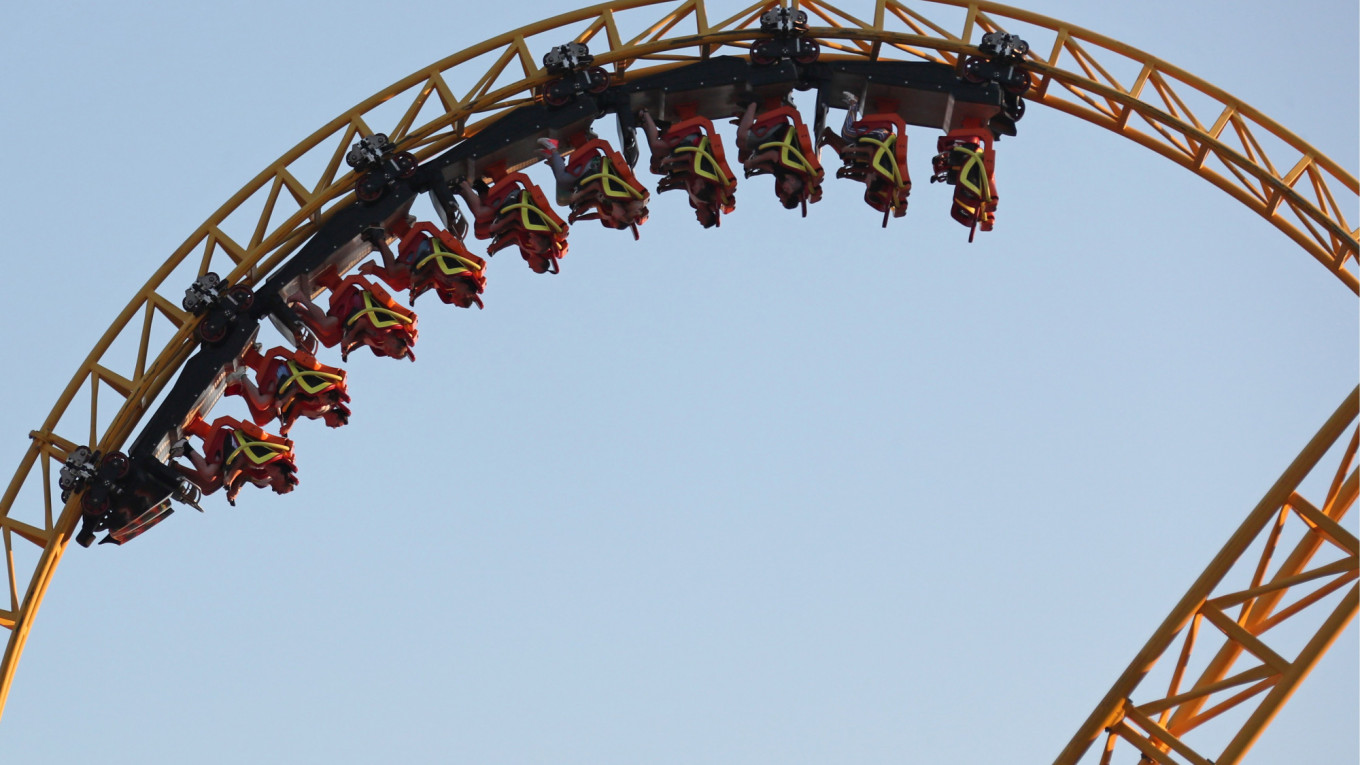Russia has won plaudits for its macroeconomic handling of the coronavirus. Can other countries learn from its success?
A year after the coronavirus pandemic plunged the global economy into turmoil and sent stock markets tumbling, Russia has emerged as one of the world’s best performers.
Russia’s economy shrank by just 3.1% in 2020 — far less than advanced economies — and could reach its pre-pandemic size within the next 12 months. The most recent praise for Russia’s handling of the crisis came from the International Monetary Fund (IMF), which said Moscow had surpassed expectations in dealing with the crisis and upgraded its forecasts for the year ahead.
That Russia’s strong performance came after five years of stagnation is no coincidence, economists say, and has triggered fresh debate over whether Russia has managed to conquer the pernicious boom-and-bust cycle, and what other countries can learn from its example.
“Russia has definitely made huge progress in terms of beating boom and bust,” said Elina Ribakova, deputy chief economist at the Institute of International Finance (IIF).
“I wouldn’t announce a complete victory, but it has been a big achievement of the current administration since 2014.”
Post-sanctions approach
Russia’s 2014-16 economic crisis — triggered by the imposition of sanctions and a painful crash in world oil prices — was a turning point in its approach to managing the economy.
No longer content to let volatile global oil prices dictate its economic fortunes — despite how well the policy had served it in the booming early 2000s — President Vladimir Putin set about boosting Russia’s economic sovereignty, rolling out a new macroeconomic framework designed to use years of boom to better prepare for future hardship.
The approach was based on saving, not splurging, the multibillion dollar profits from Russia’s oil exports, running a balanced government budget, reducing public debt, moving to a free-floating exchange rate and setting inflation targeting as the Central Bank’s key goal — in line with other major economies.
“All these changes had a big effect, helping to stabilize the economy and insulate Russia from the boom-bust cycle,” said Ribakova. “But it wasn’t without costs: such as low growth, little spending on social support, relatively low fiscal support on the back of the coronavirus and an underfunding of healthcare.”
That dynamic is most visible in Russia’s GDP performance. Russia grew faster than the global economy every year between 2000-2013, save for 2009, when it’s economy shrank more than the global average. That feat has since completely reversed, with Russia not once outperforming the world economy since 2013, except during the coronavirus pandemic, when its economic contraction was softer.
 Eurasia Press & News
Eurasia Press & News




